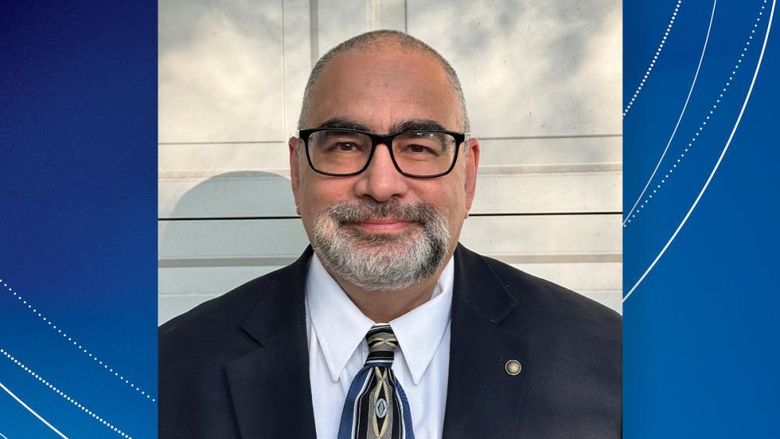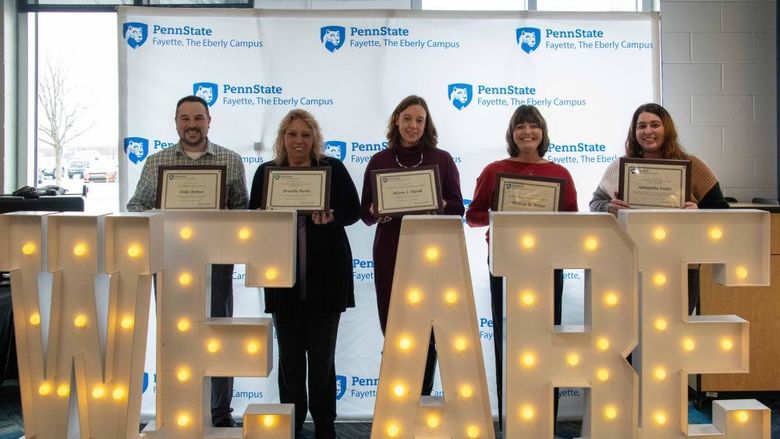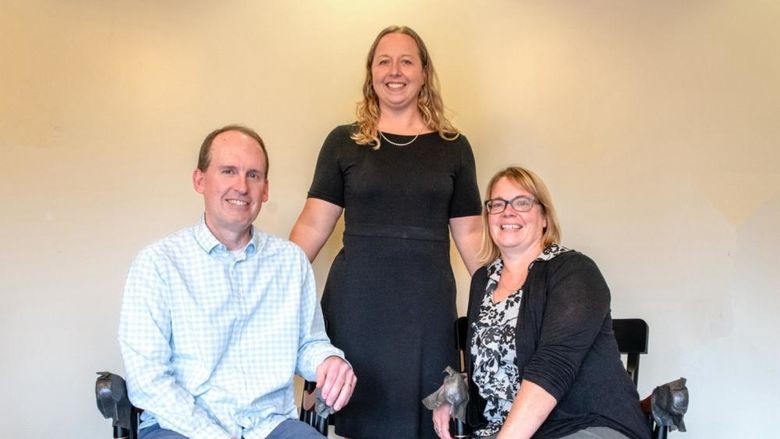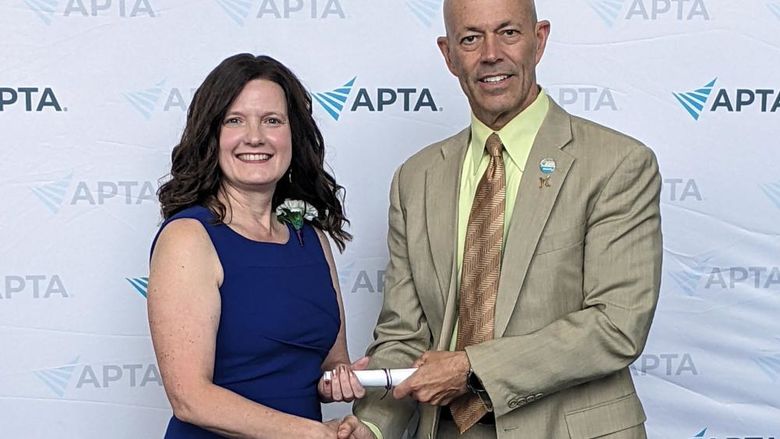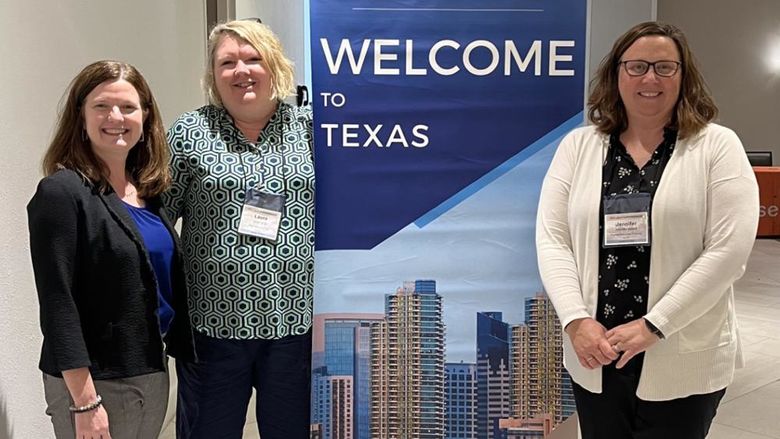UNIVERSITY PARK, Pa. — Sarah Ades, associate professor of biochemistry and molecular biology in the Eberly College of Science; Matthew Parkinson, associate professor of engineering design and mechanical engineering in the College of Engineering; and Gib Prettyman, associate professor of English at Penn State Fayette; have received the Alumni/Student Award for Excellence in Teaching and have been named 2017 Penn State Teaching Fellows.
The Penn State Alumni Association, in conjunction with undergraduate and graduate governing bodies, established the award in 1985. It honors distinguished teaching and provides encouragement and incentive for excellence in teaching. Recipients are expected to share their talents and expertise with others throughout the University system during the year following the award presentation.
Sarah Ades
Ades said the traditional approach to science education, in which facts are taught through lectures and techniques are taught in lab courses, bears little resemblance to how science is practiced. That’s why she’s restructured her teaching methods to better prepare her students for the field.
“Science is best learned by engaging in the scientific process, whether that is analyzing problems in the classroom or designing experiments in the lab,” said Ades. “My role as a teacher is similar to that of a coach. I guide students in learning new skills and concepts, design materials to help them practice these skills and challenge them to apply these skills to new situations.”
Ades models her classes after a scientific community in which students work collaboratively and share results to address scientific problems. She’s using this approach to shape other courses at Penn State by leading a review and assessment for three departmental majors in the college. She is also changing the way science is taught at the national level by shaping workshops with the American Society for Microbiology, years after the workshops inspired her to think critically about her teaching methods.
A former student and nominator said Ades pioneered the inquiry-based approach to teaching an introductory biology lab, urging students to think critically and practically about science.
“Ades has taken on the task of using assessment data to look at the microbiology curriculum and has engaged with her colleagues and experts at the national level to accomplish this,” said a colleague and nominator. “Because of her passion to provide exceptional educational opportunities, her investment in developing these skills has made her perhaps the most expert faculty in the college at curricular design and assessment.”
Matthew Parkinson
A nominator and former student in Parkinson’s class remembers well the first assignment he ever gave her: walk on water.
Parkinson asked students to build shoes capable of allowing someone to walk 50 meters across a body of water. Through brainstorming, prototyping and extensive trial and error, the student’s group traversed the Forum Fountain wearing a crudely devised apparatus formed from potato buckets and soda bottles. It was then that she understood Parkinson’s underlying message: engineers are routinely tasked with making the impossible possible.
“Parkinson’s assignment was not about concept selection or the importance of iterations,” she said. “It was about her ability to accomplish anything she set her mind to.”
Parkinson said he and his students work hard together and expect great things of each other.
“Difficult problems are much better than easy ones at capturing focus and engaging the sustained effort that produces true success and learning,” said Parkinson. “When my students leave class, I want them to feel confident and engaged. I also want them to enjoy life, each other and the many opportunities that await them.”
Another nominator and former student said Parkinson’s teachings have had a lasting impact on his life.
“When you force yourself into the habit of working to make something you can be proud of, you find it not only affecting you in other classes, but in everything you do,” said the nominator. “I began to notice that I started putting that extra effort into so many things because I wanted results I could be proud of. This is by far the most valuable thing I learned from Parkinson.”
Parkinson’s out-of-the-box approach to learn is best illustrated through another assignment he tasks his engineering students with: cook an entire meal out of items they have never cooked with, using recipes for all but one dish.
Parkinson said the challenging exercise demonstrates the differences in product development. Students often find recipes lead to more consistent results, but working without a recipe can be more spontaneous, creative and fun.
“Parkinson inspires students to be lifelong learners,” said a nominator and colleague. “He modifies his courses to match students’ interests and current events. He leads global educational initiatives and takes time to mentor his students both in and outside the classroom. He embodies all things an excellent educator should be.”
Gib Prettyman
Prettyman said he approaches teaching each day with the same mantra: be compassionate and make them work. He said having a clear focus while teaching helps him maintain rigorous standards, be passionate about the subject matter, be compassionate toward his students and allow them time and space to work.
In his classes, which frequently focus on writing, he spends a great deal of time offering extensive comments and suggests and allows his students to submit unlimited revisions on major assignments. That’s a lot more work for him, but the end result he said is that students continue to improve on their work and, through trial and error, become much better writers.
“This practice allows me to make constructive comments aimed at how the essay could be improved,” said Prettyman. “This way, the focus is not on failures, but on areas for improvement.”
Prettyman has also taken on a multitude of leadership roles. As campus honors coordinator, he needed to build the program as there were no students currently enrolled. Twice he served as interim director of academic affairs, he led campus-wide efforts to improve and expand teaching efforts.
A former student and nominator said Prettyman helped showed students taking a writing course as a general education requirement the benefits of improved writing.
“As an engineering student, I would often hear my fellow classmates disregard the general education requirements,” said the nominator. “Prettyman’s class debunked this freshman myth. He motivated and showed us the importance of verbal and written communication. No matter how great your idea is, if you are unable to present it clearly, it is destined to be doomed.”
“Whether working with undergraduates or his colleagues, Prettyman epitomizes learner-centered interactions and engaged pedagogy in such a way that all participants have the opportunity to teach and learn from one another,” said a colleague. “His commitment to excellence is so well known that he is simply referred to and sought out as a master teacher.”
